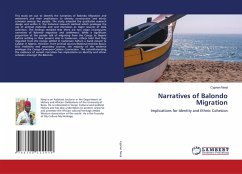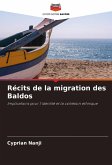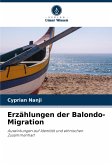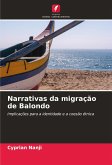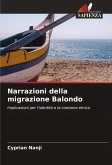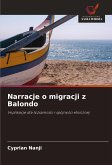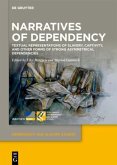This study set out to identify the narratives of Balondo Migration and settlement and their implications to identity construction and ethnic cohesion among the people. The study adopted the qualitative research design and within it, the historical research method which privileges the use of archival materials and oral interviews as major sources of data collection. The findings revealed that there are two major incongruent narratives of Balondo migration and settlement. While a significant proportion of the people talk of migrating from the Congo to Nigeria before settling in their present sites in Cameroon, others hold that they migrated from the Congo settled in Cameroon before a band moved to Calabar in Nigeria. However, from archival sources (National Archives Buea), Oral traditions and secondary sources, the majority of the evidence privileges the Congo-Cameroon-Calabar Connection. This notwithstanding the existence of variant narratives has implications on identity and ethnic cohesion amongst the Balondo.
Bitte wählen Sie Ihr Anliegen aus.
Rechnungen
Retourenschein anfordern
Bestellstatus
Storno

